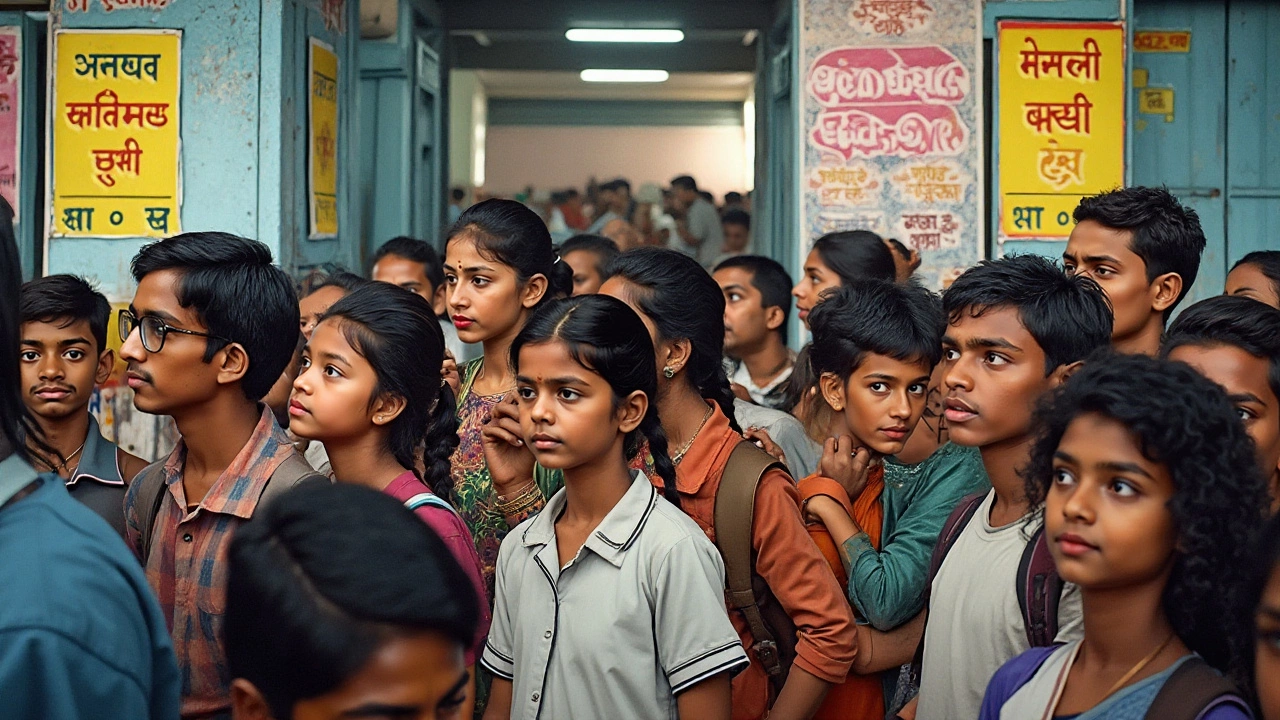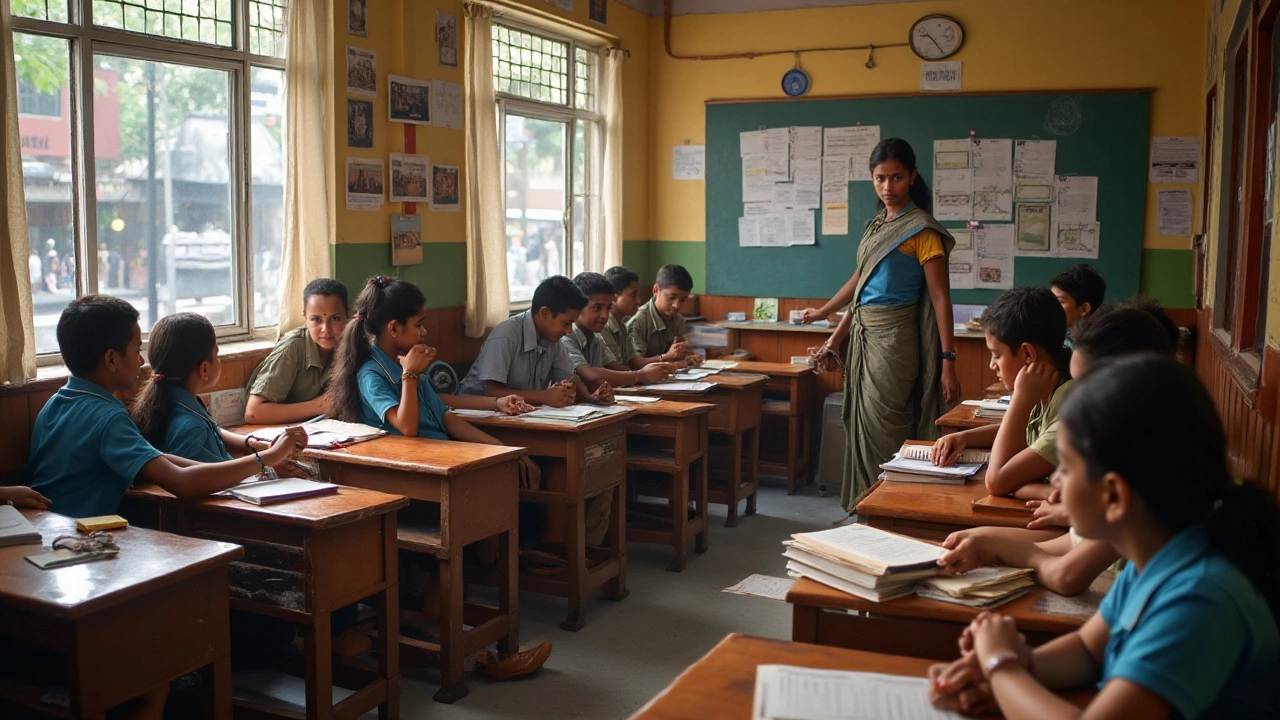Amid the clatter of pencils and the rustling of papers lies a challenge that many around the world prepare for with both dread and determination: the high-stakes exam. The mention of such tests can often conjure images of sleepless nights and stacks of study material. Yet, it's not just the content that makes these exams stressful, but a mix of high expectations, fierce competition, and life-changing outcomes.
While some exams are known locally for their difficulty, others have gained global notoriety. Whether it's an entrance exam for a top university or a qualification crucial for a professional career, these tests push limits and demand resilience. But why exactly do these exams rise to the peak of stress charts, and how can test-takers navigate this pressure-cooker environment? Through real-world examples and expert insights, we explore the facets that define a stressful exam and share ways to alleviate the tension.
- Identifying the Stress Factors
- Notorious Examples Worldwide
- How Culture Influences Exam Stress
- Impact on Students and Professionals
- Coping Strategies for Exam Stress
Identifying the Stress Factors
When it comes to dissecting what makes an exam the most stressful globally, several intertwined factors naturally come to mind. First off, the stakes involved play a critical role. A test that determines entry to a dream university or the gaining of a crucial professional license can inherently carry immense pressure. The weight of these consequences is not just academic or professional; they often carry personal and familial expectations, adding invisible yet formidable layers to the exam stress. Candidates are not just trying to prove their intellectual capability; they are battling the fear of letting themselves or their loved ones down.
Another element is the perception of failure. In societies where academic success is tightly linked to self-worth and future opportunities, the anxiety around disappointing results can be crippling. This is particularly true in cultures where academic performance is a key determinant of social and economic mobility. In India, for example, the Joint Entrance Examination (JEE) and the National Eligibility cum Entrance Test (NEET) are notoriously intense. The desire to secure a spot in one of the prestigious institutes means students prepare years in advance, often sacrificing leisure and personal development, which can amplify feelings of stress and isolation.
Moreover, the content difficulty of these exams cannot be underestimated. These tests are designed not only to assess knowledge but to challenge cognitive endurance and problem-solving skills under pressure. The balance between breadth and depth in these exams is deliberate, testing a candidate’s ability to recall and apply complex ideas swiftly and accurately. For instance, the Gaokao in China includes a breadth of subjects with questions that often require lateral thinking—an aspect that graduates and educators alike critique and respect.
Another layer to consider is the sheer competition. Often, these exams are not just a contest against a set standard but other candidates who are equally or more prepared, ambitious, and determined. The number of applicants far exceed the available slots in many cases. An eye-opening fact is seen in the battle for Ivy League admissions in the United States, wherein acceptance rates can dip below 5%, a statistic that underscores the cut-throat nature of such competitive exams. This environment of scarcity can create a mindset of relentless comparison among peers, feeding stress.
The time constraints also serve as a critical stress factor. It’s not just about what you know, but how quickly you can present it. Limited time frames can lead to panic mistakes, and there’s often no room for second guessing in high-pressure environments. This element encourages a culture of speed over thoroughness, pushing candidates to the brink of their mental fortitude. It's these multifaceted pressures that combine to make certain exams a significant source of stress and anxiety among students worldwide.
Notorious Examples Worldwide
When exploring the realm of stressful exams across the globe, there are several notorious examples that repeatedly surface in discussions. These are examinations that have become legendary both for their difficulty and the immense pressure they impose on candidates. Shifting our gaze towards Asia, the Gaokao, China's National College Entrance Examination, is a daunting test that lasts up to nine hours across several days. It's often described as a make-or-break moment for Chinese students, as it largely determines their future academic careers. Each year, millions of pupils prepare exhaustively for the Gaokao because their scores can dictate not only their choice of university but ultimately their career paths. The exam covers a vast array of subjects, and the rigorous preparation required can affect students' mental and physical health. Many students and their families view the Gaokao as a pivotal rite of passage.
The Indian Institutes of Technology Joint Entrance Examination (IIT-JEE) is another example of an exam with a fiercely competitive reputation. With only a tiny percentage of aspirants making it through, the IIT-JEE is famous for its intricate questions that test deep understanding of science and mathematics. The preparation for this exam starts years in advance, with many students attending specialized coaching classes to gain an edge. The pressure to succeed here is immense given the allure of a seat in one of the prestigious IITs, which can significantly enhance career prospects. In the words of a former IIT graduate quoted in The Economic Times,
"Clearing the IIT-JEE is not just about hard work; it requires strategic preparation and mental resilience."
Crossing over to the Americas, the United States Medical Licensing Examination (USMLE) serves as a formidable barrier for medical graduates aiming to practice medicine in the States. The multi-part examination covers clinical knowledge, patient care, and communication skills, demanding a comprehensive understanding of medical science. Aspiring doctors often face stress given the high stakes involved. A failure in any step can significantly delay their professional journey. Unlike other exams, the USMLE is not just taken by U.S. students; it also attracts international medical graduates who seek to establish careers in U.S. healthcare. The exam's reputation induces a high level of anxiety due in part to the strict timelines and significant expenses associated with retakes.
Additionally, the United Kingdom's 11-plus entrance exams, significant for entrance into leading grammar schools, are well known for impacting young students at a formative age. The content of these exams varies with institutions, contributing to their unpredictability. The prospect of significant doors closing at such an early age adds to the pressure felt by both students and parents. This exam sets the educational trajectory in a child's life, thus contributing to the oft-cited academic stress prevalent in the UK. As a controversial subject, many debate whether this stress is justifiable, yet its enduring place in the educational system speaks to its perceived importance.
The Future of Stressful Exams
As education systems evolve, questions abound about the necessity and fairness of such stressful exams. Some argue for alternatives that assess a student's capabilities over time rather than in a high-pressure environment. The rise of technology presents opportunities for adaptive testing methods that could mitigate pressure by offering personalized assessments. Yet, these notorious exams have become embedded in cultural consciousness, prompting bustling industries in test preparation and coaching, particularly in countries like India and China. Though the pressure mounts, the allure of opportunities post-success continues to hold sway, urging aspirants to brave the trials. What remains clear is that these exams test not just knowledge but the mettle and resilience of candidates worldwide.

How Culture Influences Exam Stress
In many parts of the world, the pressure to succeed on a stressful exam is deeply rooted in cultural norms and values. Education systems and societal expectations often dictate that high performance in such exams is synonymous with future success and stability. In countries like China, the Gaokao, an intense college entrance examination, is not just a test but a defining moment in a student's life. The cultural importance placed on education as a pathway to respect and status is immense, turning the exam into a high-pressure battleground where students are expected to perform under extraordinary stress.
The influence of culture on competitive exams is also evident in India, where the IAS (Indian Administrative Service) exam is held in the highest regard. Here, family expectations and societal recognition for clearing the exam elevate it to a pedestal, making the preparation a rigorous journey. Parents often emphasize academic achievements from a young age, instilling a sense of responsibility and urgency to excel in academic pursuits. This type of pressure can lead to a highly stressful environment, influencing not only the student's mental well-being but also their physical health.
Western countries like the United States approach exams like the SAT or bar exams differently, yet culture still plays a role in how stress is perceived and managed. The focus often shifts to personal achievements and individual excellence. Unlike in some Asian countries, where collectivist values prioritize group success and honor, the American educational culture often promotes autonomy and personal goals, encouraging students to find unique ways to cope with exam stress. Nonetheless, the competitive edge remains, creating its own share of anxiety around university admissions and career advancements.
"The pressure students face during exams often reflects their society's views on education and success," states education psychologist Dr. Lee Hannigan. "Understanding these cultural contexts is key to addressing test anxiety effectively."
Some cultures, however, approach examination stress with a different attitude. In Scandinavia, the education system tends to focus more on individual learning rather than cookie-cutter testing. The societal belief that education is about fostering curiosity and teamwork lessens the pressure felt by students during exams. This unique approach highlights how societal values around education and success can dramatically affect the levels of stress associated with competitive exams.
Cultural Expectations and Their Psychological Impact
When cultural norms elevate the significance of exams, they can amplify feelings of inadequacy and failure among students who may not meet these expectations. The psychological impact of such cultural pressure is significant, potentially leading to mental health issues like anxiety and depression. Students caught in these high-pressure environments might face an identity crisis, tied to their performance rather than their individual potentials. The emphasis on continuous achievement can cause stress to spiral, affecting overall development.
| Country | Exam | Approximate Participants |
|---|---|---|
| China | Gaokao | Over 9 million |
| India | JEE (Joint Entrance Exam) | Approximately 1.5 million |
| USA | SAT | Over 2 million |
Strategies like group therapy sessions and mindfulness practices are emerging in these high-stress environments, offering students a toolkit for managing cultural pressures effectively. Creating a support network that includes family, teachers, and peers is essential in helping students navigate the intense demands of these exams, showing that while culture deeply influences exam stress, it can also provide the resources for resilience.
Impact on Students and Professionals
The pressures associated with stressful exams are felt deeply by both students and professionals. The stakes are particularly high for students who often view these assessments as gateways to their future. A student's performance may determine the prospects of gaining admission into prestigious schools or programs, setting the course for their academic and professional life. The anxiety can impact not only their mental health but also their physical well-being, leading to sleepless nights, poor nutrition, and stress-induced illnesses. This level of stress can result in anxiety disorders, with some reports indicating that as many as one in four students suffer from exam-related anxiety.
On the professional front, high-stakes certifications and examinations dictate career advancements or even the ability to practice in certain fields. For many professionals, these tests are pivotal moments that require substantial time and financial investment. The stress is magnified when an individual has family commitments or a full-time job. Failing such an exam can lead to significant financial and time setbacks, adding to the pressure.
Beyond the individual level, these exams can affect social structures and societal perceptions. An undue focus on test scores can foster an environment where creativity and original thought are undervalued. A survey conducted by the American Psychological Association found that 45% of individuals undergoing entrance exams experience clinical levels of anxiety, pointing to the scope of the issue.
With such severe ramifications, it becomes vital to address these pressures constructively. Initiatives involving counseling, stress management workshops, and academic support play crucial roles in alleviating pressure. Many institutions now incorporate these resources, understanding that while the exams themselves may not change, the support systems can evolve to better manage the impact on both students and professionals.
"The pressure to succeed has never been higher," says Dr. Sarah Lyons, a noted educational psychologist. "While these exams are designed to be challenging, it's just as important to imbue learners with the resilience and support they need to thrive in such environments."

Coping Strategies for Exam Stress
High-stakes exams often trigger a whirlwind of stress and anxiety that can feel overwhelming. To navigate this storm, it’s crucial to adopt effective coping strategies that can help you manage the pressure. One important method involves developing a structured study plan. Break down the syllabus into manageable sections and create a timetable that allocates specific time slots for each segment. This not only aids in covering all necessary material but also helps to prevent last-minute cramming, which can be counterproductive. For instance, many students find success in using the Pomodoro Technique — studying in focused intervals of 25 minutes followed by a 5-minute break, allowing for refreshed and sustained focus.
An often overlooked yet vital aspect is incorporating regular physical activity into your routine. Exercise is known to reduce stress levels significantly by releasing endorphins, the body’s natural mood elevators. Even a simple activity like a brisk walk or a cycling session can clear the mind and re-energize the body. Coupled with exercise, maintaining a balanced diet can further enhance cognitive function and prevent energy dips during study sessions.
Mental well-being is equally crucial as physical health. Practices such as mindfulness meditation and deep-breathing exercises can greatly reduce anxiety. Allocating a few minutes each day to sit quietly and focus on your breath can strengthen your mind’s ability to stay calm under pressure. A study published in the Journal of Educational Psychology suggests that students who practiced mindfulness reported lower levels of test anxiety and improved exam performance.
"Mindfulness not only eases stress but also fosters a mindset of resilience and adaptability, essential traits for facing challenging exams," notes Dr. Lisa Carlson, a renowned psychologist.
Another strategy involves visualizing success. Spend time each day picturing yourself completing the exam calmly and confidently. Visualization can boost your belief in your capabilities, fostering a positive attitude toward the exam challenge ahead. Adding to this, maintain a clear perspective on the exam’s impact. While important, keeping the exam in context with the bigger life picture reduces the feeling of dire consequences.
Social support plays a pivotal role in combating exam stress. Engaging with peers who are also preparing for the same exam can provide a sense of camaraderie and shared mission. Studying in groups occasionally helps gain new insights and redescribe challenging concepts with simplified explanations. It's beneficial to balance solitary study sessions with collaborative ones.
Last but not least, ensure you get enough rest. Sleep is often sacrificed in the sprint toward exam day, yet it is during sleep that the brain processes and organizes information learned. Aim for at least 7 to 9 hours of quality sleep per night, especially as the exam approaches. This helps retain sharpness and feeds into better decision-making.
